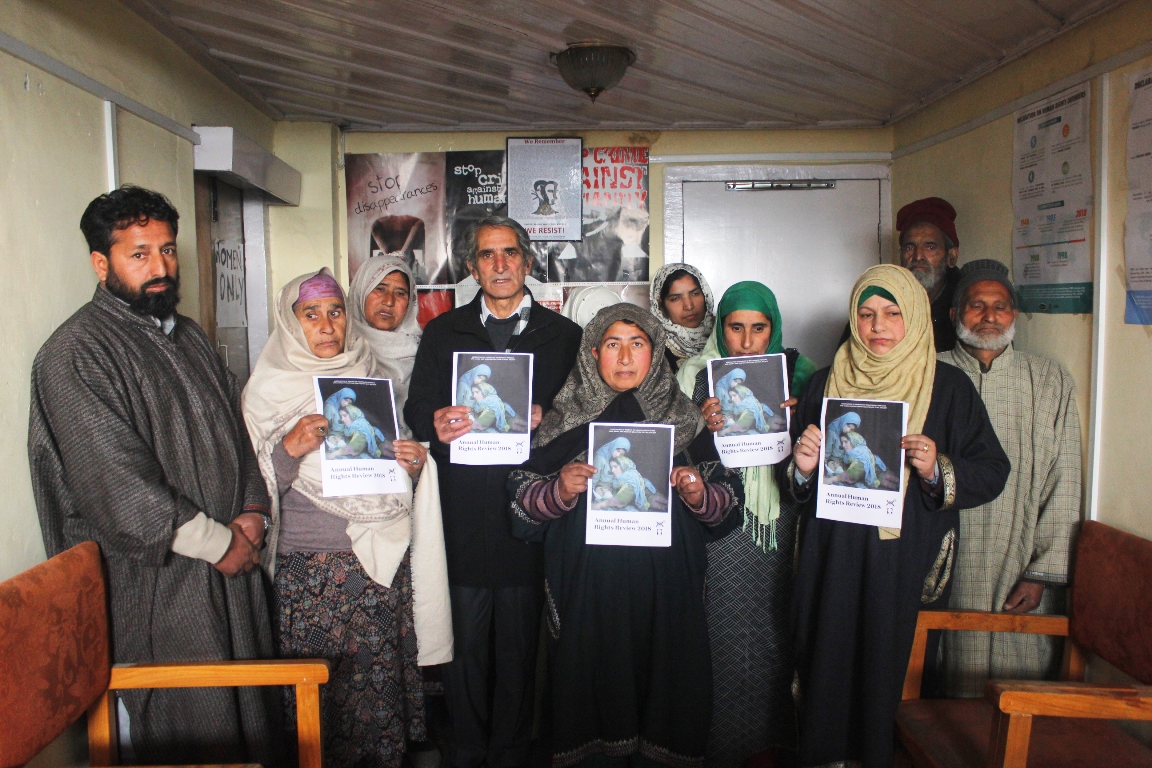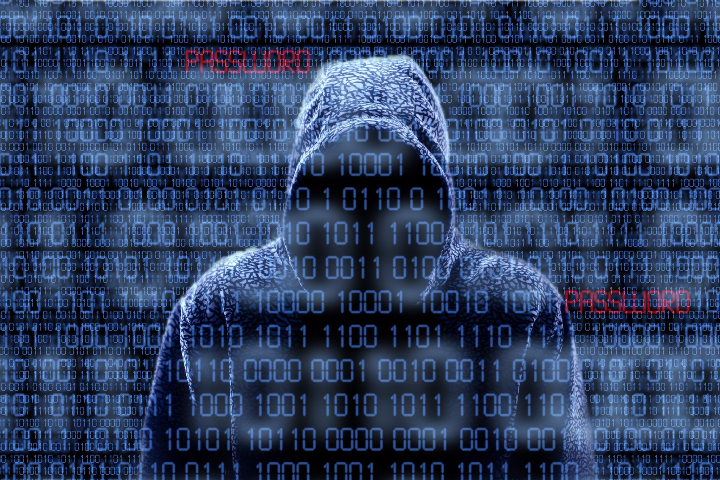SRINAGAR: The Jammu and Kashmir Coalition of Civil Society (JKCCS) report suggests that the year 2018 was the deadliest year as the state lost 586 persons during the 365 days. The report was released in Srinagar on Monday.

“The year 2018 was the deadliest year of the last decade in Jammu and Kashmir as violence peaked during the year resulting in the killing of at least 586 people in different incidents of violence, which is highest in the last decade. Among 586 people killed, 160 are civilians, 267 are militants and 159 are members of the armed forces and Jammu and Kashmir police. The killing of 267 militants during encounters with armed forces and police is also the highest in the last decade. In fact, there has been a marked uptick in militant killings since 2016 as 145, 216 and 267 militants were killed in 2016, 2017 and 2018 respectively. In the last decade the year 2012 witnessed the least number of killings,” JKCCS in a statement said.
The JKCCS released a detailed statement about the findings of the report based on the day to day incidents.
Table 1 – 2008 to 2018
| Year | Armed Forces and Police | Militants | Civilians | Yearly Total |
| 2008 | 151 | 363 | 157 | 671 |
| 2009 | 117 | 244 | 99 | 460 |
| 2010 | 102 | 201 | 167 | 470 |
| 2011 | 71 | 101 | 56 | 228 |
| 2012 | 36 | 75 | 32 | 143 |
| 2013 | 82 | 73 | 48 | 203 |
| 2014 | 83 | 99 | 53 | 235 |
| 2015 | 58 | 106 | 55 | 219 |
| 2016 | 104 | 145 | 146 | 395 |
| 2017 | 125 | 216 | 108 | 449 |
| 2018 | 159 | 267 | 160 | 586 |
| Total | 1088 | 1,890 | 1081 | 4059 |
“The year saw extrajudicial executions of at least 160 civilians in Kashmir; with the month of May recording, the highest (28) civilians killed this year. November recorded highest (61) killings followed by October with 57 killings,” JKCCS statement added.
Table 2 – Month Wise Killing of the Year 2018
| Month | Armed forces / Police | Militants | Civilians | Monthly Total |
| Jan | 14 | 10 | 15 | 39 |
| Feb | 17 | 09 | 07 | 34 |
| March | 12 | 22 | 13 | 47 |
| April | 13 | 23 | 20 | 56 |
| May | 09 | 19 | 28 | 56 |
| June | 19 | 25 | 11 | 55 |
| July | 10 | 12 | 09 | 31 |
| Aug | 18 | 25 | 10 | 53 |
| Sep | 11 | 35 | 08 | 55 |
| Oct | 14 | 29 | 14 | 57 |
| Nov | 09 | 39 | 13 | 61 |
| Dec | 13 | 19 | 10 | 42 |
| 159 | 267 | 160 | 586 | |
| Total Killings | 586 | |||
The JKCCS statement said among 160 civilians killed in 2018, 18 are women. The year also witnessed the killing of at least 31 children, accounting for nearly 20% killings of civilians, which is highest in the last ten years.
“South Kashmir continued to witness increased violence as has been observed since the killing of Hizbul Mujahideen commander Burhan Wani in July 2016. The four districts of South Kashmir – Kulgam, Anantnag, Pulwama and Shopian jointly recorded the highest number of civilian killings with 85, while North Kashmir districts of Baramulla, Kupwara, and Bandipora recorded 24 civilian killings and the Central Kashmir districts of Srinagar, Ganderbal and Budgam recorded 13 civilian killings,” it said.
Table 3 – District Wise Civilian Killings
| District | Total Civilian Killings |
| Kulgam | 26 |
| Anantnag | 07 |
| Pulwama | 28 |
| Shopian | 24 |
| Srinagar | 07 |
| Ganderbal | 02 |
| Budgam | 04 |
| Baramulla | 14 |
| Bandipora | 07 |
| Kupwara | 04 |
“The excessive use of force on civilians continued unabated this year as the killings of civilian demonstrators suggest. In 2018, 191 incidents of excessive use of force have been recorded. The use of force on civilian demonstrators by armed forces in the situation emerging out of encounters with militants lead to 40 extra-judicial executions,” the JKCCS statement added.
“In 2018, at least 275 Cordon and Search Operations (CASOs) were conducted across Indian administered Jammu and Kashmir which resulted in the killing of 267 militants. According to the data compiled by APDP and JKCCS, at least 143 encounters took place between Indian armed forces and the militants following CASOs. In 2018, at least 120 cases of damage to civilian houses were reported in Jammu and Kashmir in which 31 houses were completely burnt while 94 were partially damaged,” said JKCCS statement.
“In 2018, the government continued to use arbitrary and administrative detention like Public Safety Act (PSA) to detain dissenting individuals and Hurriyat leaders. Hundreds of fresh detentions under PSA were reported this year. Apart from administrative and preventive detentions, putting pro-independence leaders under house arrest was common in 2018. People were also detained in illegal detention at police stations and sometimes even army camps on the pretext of questioning them,” it added.
“In 2018, three civilians were forcibly disappeared and their dead bodies later surfaced. The crime of enforced disappearances is continuing crime and the Indian State continues to be in denial about the 8000 enforced and involuntarily disappeared persons from Jammu and Kashmir. The government in Indian administered Kashmir is reluctant to carry out forensic investigations into 7000+ unmarked and mass graves despite several SHRC recommendations.”
“In 2018, media in Jammu and Kashmir continued to be at the receiving end of violence,” it said.
“The state government in Kashmir continues to exercise restraint on the freedom of religion and belief and frequently resorts to curbs. In 2018, for 12 Fridays out of 52, prayers were disallowed in the Jamia Masjid and Muharram processions were also disallowed,” the statement added.
In the year 2018, APDP and JKCCS documented 108 instances of internet blockade in Jammu and Kashmir.
“Sexual violence as a ‘weapon of war’ continues to be prevalent in Jammu and Kashmir as the horrifying rape and murder of an eight-year girl from Kathua in January 2018 demonstrates. In 2018, there were other cases where allegations of rape were made against CRPF personnel in Poonch and in another case, an Indian army personnel was arrested by police for allegedly abducting a girl in Poonch. This year in February, JKCCS submitted a petition to State Human Rights Commission (SHRC) listing 143 cases of sexual violence cases in Kashmir and demanded investigation but till now no progress has happened in the case.”
“In 2018, several cases of State surveillance were reported in Kashmir. This year, there were reports that army in Kashmir is seeking information on populations, from the police in the vicinity of the armed forces camps,” JKCCS in a statement said.
“In 2018, APDP and JKCCS received several complaints from people who are repeatedly summoned to the police stations in an illegal and informal manner where they are threatened for what they have been writing on several social media platforms, mainly criticism against Indian officials and the conduct of armed forces. This constitutes harassment and violation of the rights of freedom of expression and a breach of individual privacy.”
“In 2018, the instances of persecution and harassment of Kashmiris living outside was frequently reported. According to the data compiled by APDP and JKCCS, at least 22 incidents of harassment and persecution of Kashmiris living outside were reported this year in which 24 Kashmiri students were assaulted and 19 were arrested.”

“In 2018, the Jammu and Kashmir was put through another military election by conducting of Municipal Elections and Panchayat Elections. Both these elections witnessed heightened militarization in the valley and no independent observation of the elections was allowed. Both the elections this year, which witnessed single digit polling, had many anomalies, which are further detailed in the report,” added JKCCS statement added.
“In 2018, political activists and workers of various parties continued to be attacked and killed. This year at least 11 political activists were killed in acts of targeted violence in Jammu and Kashmir. This year also witnessed multiple attacks on the family members of policemen, political activists and militants.”
“The year also witnessed the extra-judicial executions of two persons with mental disabilities by armed forces. In the last many years, APDP and JKCCS have documented at least 18 such killings.”
“This year the state of impunity continued to exist as no breakthrough was made in any case in which armed forces are accused of human rights violations, which includes the mass gang rape and torture of the women and men in the twin village of Kunan Poshpora in 1991. The case is still stuck in the Supreme Court of India with no headway,” added JKCCS in a statement said.
“This year government released figures of 21,400 hectares of land in Jammu and Kashmir under the illegal occupation of Indian armed forces, with 18,846 hectares under ‘authorized occupation’ of the armed forces in Kashmir including Ladakh. The heightened militarization in Jammu and Kashmir and especially in Kashmir was witnessed during elections and during the Amarnath Yatra,” said the statement.
“In 2018, suicides among Indian armed personnel stationed in Kashmir saw a massive uptick as reportedly 20 armed forces personal claimed their lives, which is highest in the last ten years,” JKCCS in a statement said.















